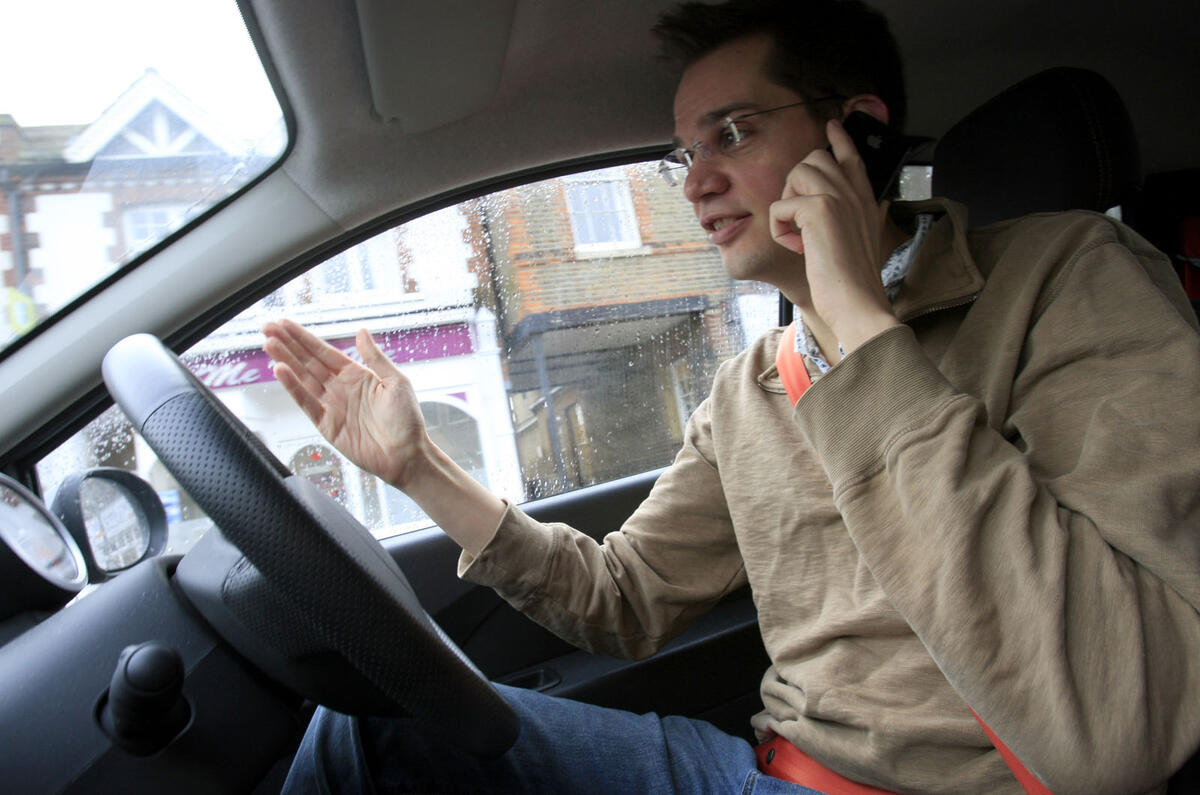While today’s Transport Committee report shines a welcome spotlight on the epidemic of mobile phone use at the wheel, a request from MPs for tougher enforcement is merely talk until actions are set in stone by the Government.
That we are still a long way from a solution will be of no comfort to those who have lost loved ones as the result of somebody checking their WhatsApp messages at the wheel. Despite penalties for doing so being increased in 2017, the rate of enforcement has plummeted. It doesn’t take much thought to theorise the problem at hand.
Years of prioritising camera-based enforcement over recruiting traffic police has blatant consequences, as we’ve commented here time and time again. No camera in place anywhere in the UK has the ability to accurately spot when a driver isn’t paying attention, is driving dangerously (rather than speeding in a binary sense) or is under the influence, yet camera installation rises while road policing numbers have fallen.
Our new Prime Minister’s plan to hire 20,000 extra police officers by 2022 is encouraging, but it’s not yet clear whether the priority for this lies on our roads or on our streets.
While car makers have the technology to monitor driver attention from behind the wheel and warn them, there isn’t yet a method of linking this up with legal enforcement. More worrying still is that there appears to be a legal grey area with regards to what actually constitutes mobile phone use, as the recent case involving Ramsey Barreto has revealed.
It seem there’s still plenty that needs to be clarified before the problem can be properly tackled - and as technology evolves, it could become even tougher to enforce.
Read more
Phone use while driving should be banned entirely, says Transport Committee
How Autocar writers would fix Britain's roads and transport
Intelligent speed assistance: everything you need to know




Join the debate
Add your comment
I don't really get why people
I don't really get why people want to talk on the phone anyway when they're driving. I still enjoy my car and my driving, even though so many things try and prevent this. I like to concentrate on my car and my surroundings, maybe others just see it as a chore. Phone calls and texting can be done later.
To address a few points:
To address a few points:
1: Total number of people killed by drivers on mobiles 33 in 2017, the chances of you killing someone while using a mobile is vanishingly low hence why the law is ignored.
2: The chances of you being caught is also vanishingly low no reasonable number of police officers you could hire will be able to change this. What is more given that only 33 people were killed by drivers on phones those police should not be focused on stopping this anyway.
3: MPs cannot legislate on car infotainment that is done at an EU level, it is also much too fast moving and most importantly limiting direct integration with the car will just force people to stop using the safest version of handsfree. You can't stop people talking on headsets or phone speakers.
4: Talking on a handsfree kit is very different to talking to someone in the car, it is also very different from a pilots, police or military personell talking on the radio.
When you are talking to passengers you are both in the same environment, the drivers headspace is still in the car, the passenger will also react to the situation outside/inside and modifiy how they are communicating, there is also body language.
In the case of professionals on the radio they are generally talking about operating the vehicle or conducting the mission, again their headspace is very much still focused on the vehicle.
When you are talking on handsfree particulary when engaging in problem solving which requires yoou to picture some other place (e.g. discussing a schedule) you are being very distracted.
well, what about food,
well, what about food, cigarettes, Vapes and so on, its all cobblers ther eis no way i would have my system blaocked by the brands, unless they refund me some money, i bought my cars with this added, to then have it removed it takes away a value to the car and therefore i would require refund on it, to be hones ost cars you can press a button and speak into the car to get a call made, do that across the board, stop streaming as thats far more damgerous, as people look at the screen on their ipod, iphone or whatever to locate particular songs, where as a chat is just that a chat, more tripe from people that have no idea.They need to get real and do something about road conditions, and fuel prices first then the trivial stuff